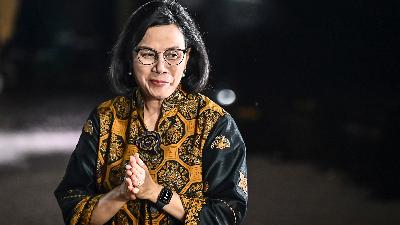The Bogus Commitment to Safeguarding Biodiversity
There is an increasingly real threat to Indonesia’s biodiversity. It cannot be overcome through empty slogans at international forums.
Tempo
October 21, 2024

ALTHOUGH it is not as popular as the Climate Change Conference, the United Nations Biodiversity Conference is no less important and urgent in terms of the need to reach agreement on safeguarding the future of the earth. The world is now facing three major crises: climate change, pollution, and the loss of biodiversity. All three are mutually connected and need an integrated solution.
The Indonesian government is currently struggling with the impact of the climate crisis. But many government policies are at odds with the global targets to prevent global warming. The Indonesian economy is still highly dependent on the extractive industry sector, which causes deforestation. Instead of improving matters within the country, Indonesia appears to be more focused on diplomacy and proposals at international forums.
The Indonesian delegation is to attend the 16th Conference of the Parties to the Convention on Biological Diversity (COP CBD) in Cali, Columbia, from October 21 to November 1 this year. However, rather than simply bragging in international forums, the delegation should be more introspective regarding the implementation of the agreement reached at the same conference two years ago in Kunming-Montreal, which was aimed at protecting 30 percent of the ecosystem on land and 30 percent of the maritime ecosystem.
The Indonesian 2025-2045 Biodiversity Action Plan, which the Indonesian delegation will present, reveals that only 26.7 percent of the land and 8.9 percent of the sea fall within protected areas. This is still far below the globally agreed commitment.
The biodiversity crisis is being made worse by human activity. Deforestation and pollution accelerate the mass extinction of species throughout the world. Around a million species have become extinct, and 25 percent of flora and fauna are threatened with annihilation as a result of the increase in pollution and global warming. At present, 15,336 plants, animals and fungi in Indonesia are on the list of threatened species maintained by the International Union for the Conservation of Nature.
The problem is that during the 10 years of the Joko Widodo administration, policies prioritizing extractive industries have accelerated the rate of deforestation. This not only contributes to the emission of greenhouse gases, but also wrecks vital ecosystems that should be protected. According to Forest Watch Indonesia, the actual area of deforestation exceeds one million hectares per year—a figure far higher than the government report, which claims approximately 300,000 hectares are being lost every year.
In biodiversity conferences, Indonesia can, of course, raise important issues related to financial support from the international community to safeguard biodiversity, which it is estimated totals around US$200 billion per year. But far more important are concrete steps in this country. Without a reexamination of economic policies that damage the environment, all these endeavors at the international level will be for nothing.
But hopes for changes to policy are still far from reality. President Prabowo Subianto has stressed that he will not step back from three issues: free nutritional food, down-streaming of mining and minerals, and food self-sufficiency. One manifestation of this is the clearing of Papuan forest for the food estate project, which has moved Indonesia further away from the global commitment to protect biodiversity and battle climate change.


